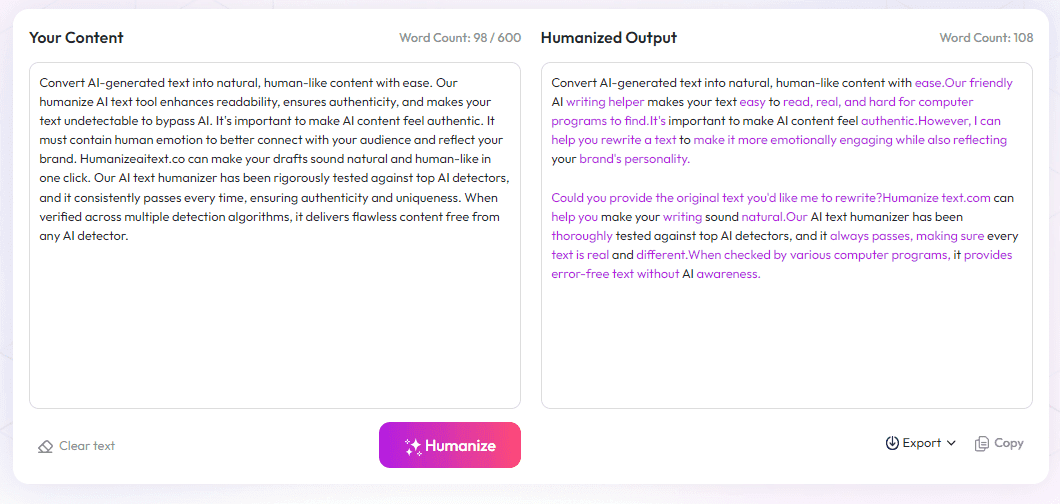Table of Contents
Looking for ways to grow as a writer or researcher? Finding the right author mentoring programs can feel overwhelming with so many options out there.
But don’t worry, stick with me, and I’ll help you pinpoint the best programs for mentoring top authors. Keep reading, and I’ll show you how to identify those programs that really make a difference.
In the end, you’ll know how to spot the top author mentoring opportunities and take your skills to the next level.
Key Takeaways
- Find mentoring programs that connect you with experienced writers who provide personalized feedback to improve your craft and career. Look for programs with a good track record and active support.
- Choose programs that match your genre and style, and check their success stories. Consider their structure—whether they offer one-on-one meetings, group sessions, or ongoing support.
- Mentoring helps improve your writing skills, builds confidence, and opens industry connections, increasing your chances of publishing success.
- Be aware of potential issues like mismatched expectations or limited engagement. Communicate clearly, stay proactive, and explore multiple resources if needed.
- Many writers succeed after mentorship, landing publishing deals, refining their voice, and gaining confidence. Real stories show mentorship is a strong boost for careers.
- Use online platforms, writing groups, and conferences to find mentorship opportunities. Engage actively, ask questions, and seek feedback to make good matches.

Identify Top Author Mentoring Programs
When it comes to growing as a writer, finding the right mentorship program can make all the difference. Top author mentoring programs are structured initiatives designed to connect emerging writers with experienced mentors who can guide, critique, and support their craft and career plans. These programs often aim to bridge the gap between aspiring authors and the often-elusive world of publishing.
One of the most valuable aspects of a great mentoring program is personalized feedback. Mentors help writers refine their voice, improve story structure, and develop a polished manuscript. As highlighted by recent data, while many organizations offer mentoring opportunities, only about 37% of professionals involved in programs report benefiting from consistent, meaningful engagements. To increase your chances of success, it's essential to identify programs that prioritize quality and mentorship depth.
Various organizations, both online and offline, run esteemed author mentoring programs. For example, some programs are tailored specifically for indie authors wanting to break into publishing without an agent. Other programs focus on literary fiction, poetry, or genre-specific writing, allowing writers to connect with mentors who understand their niche best.
Academic institutions also host mentorship initiatives, where recent graduates or students can receive guidance in academic writing or prepare for publishing their theses and dissertations. These programs often see higher retention and success rates, with around 92% of mentees receiving guidance on career development, according to recent surveys. They exemplify how targeted mentorship can boost both skill development and confidence.
Organizations such as the Society of Children’s Book Writers and Illustrators (SCBWI) and Writers’ Workshop are renowned for offering top-tier mentorship opportunities. These programs connect new writers with seasoned professionals through workshops, one-on-one critiques, and networking events. Engaging with reputable groups like these can significantly elevate your writing journey.
Additionally, attending writing conferences and webinars often opens doors to mentorship opportunities. Many conferences feature dedicated mentorship matching sessions, where you can meet potential mentors specializing in your genre. Remember, success often depends on making meaningful connections and actively seeking out programs that align with your writing goals.
In short, the best author mentoring programs are those that combine expert guidance with active engagement. Look for programs that are well-rated, have a track record of success, and offer ongoing support rather than just one-off critiques. Finding the right match can provide the encouragement and expertise needed to turn your writing dreams into reality.

How to Choose the Right Mentoring Program for Writers
Picking the best mentoring program depends on your specific goals, genre, and style, so start by clarifying what you’re looking for.
Consider programs that specialize in your genre—whether it’s romance, sci-fi, or literary fiction—to ensure the mentor understands your niche.
Check the program’s track record—look for success stories or testimonials from past mentees to see if it’s effective.
Evaluate the structure—does it offer one-on-one sessions, group workshops, or peer critiques? Decide what fits your learning style.
Be mindful of the commitments involved; some programs require a time investment that might not align with your schedule.
Research who the mentors are—look into their backgrounds, publications, and areas of expertise to find a good match.
Look for programs that provide ongoing support, not just a one-time critique, to keep your growth consistent.
Don’t hesitate to reach out for more info or ask current mentees about their experiences before making your decision.
Benefits of Joining Author Mentoring Programs
Mentoring can do a lot for your writing career—it’s like having a seasoned GPS in the often confusing journey of publishing.
You’ll get honest feedback that helps you see your work from a new perspective and spot weaknesses you might overlook alone.
Mentors can connect you with industry contacts, including agents and publishers, opening doors you might not find on your own.
Regular guidance boosts your confidence, making it easier to stay motivated and finish your project.
Programs often include workshops, webinars, and networking events that expand your writing community.
Having a mentor keeps you accountable, helping you set realistic goals and stick to deadlines.
Naturally, improved skills and connections can lead to better publishing opportunities and broader audience reach.
Plus, mentoring nurtures long-term relationships, creating a support system that lasts well beyond the program.
Common Challenges in Mentoring Programs and How to Overcome Them
Despite their benefits, mentoring programs sometimes face hurdles like mismatched expectations or limited engagement.
If you find the feedback sporadic or unhelpful, don’t hesitate to voice your concerns or seek additional input elsewhere.
Some mentors may have limited time, so set clear boundaries and communicate your needs upfront.
It’s normal to feel discouraged if progress feels slow; remember that growth takes time, and persistence is key.
Always clarify the scope of mentorship—are you looking for career guidance, craft critique, or industry advice? Make sure it aligns with your goals.
If the program isn’t delivering as promised, explore alternative options or community groups for peer support.
Stay proactive—attend webinars, participate in workshops, and seek feedback from multiple sources to supplement mentorship.
Success Stories: How Mentoring Transformed Writers' Careers
Many authors owe part of their breakthrough to effective mentoring—think of it as having a personal coach guiding their path.
For instance, some mentees have signed publishing deals after working closely with their mentors over months or years.
Others have found their voice or niche thanks to targeted feedback, leading to published works that they’re proud of.
Take the example of debut authors who started in a mentoring program and now regularly appear at major book festivals.
Mentorship can also boost confidence—many writers report feeling more prepared and motivated after just a few sessions.
Some success stories highlight how mentorship helps writers navigate rejection and industry hurdles more effectively.
These stories serve as proof that consistent guidance and support can turn a struggling writer into a published author.
Top Resources and Platforms for Finding Mentoring Opportunities
Beyond formal programs, there are plenty of resources online—websites, social media, and writing communities—that connect writers with mentors.
Check out platforms like AutoCrit and BestSelfPub for industry insights and potential mentorship leads.
Joining writer groups on social media platforms like Facebook or LinkedIn can open doors to informal mentorship opportunities.
Professional organizations, such as the Society of Children’s Book Writers and Illustrators, offer mentorship programs and local chapters.
Websites like AutoCrit or Write From Our Heart also provide valuable resources for connecting with industry professionals.
Attending conferences and writing festivals, whether virtually or in person, increases your chances of meeting mentors face-to-face.
Remember, actively participating—asking questions, sharing work, and engaging—makes it more likely you’ll find the right mentorship match.
FAQs
Top author mentoring programs include the Author Accelerator, Gotham Writers, and the Writer's Workshop. These programs offer personalized guidance, industry insights, and support to help writers improve their craft and navigate the publishing world.
Pick a program that matches your goals, genre, and experience level. Check reviews, program structure, and mentor expertise. Compatibility and tailored feedback are key factors when selecting the best fit for your writing journey.
Mentoring programs provide personalized feedback, industry insights, accountability, and networking opportunities. They help writers improve their craft and increase the chances of publishing success through expert guidance.



